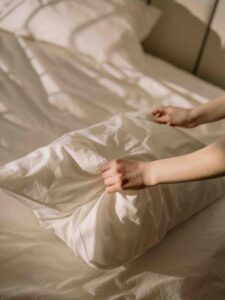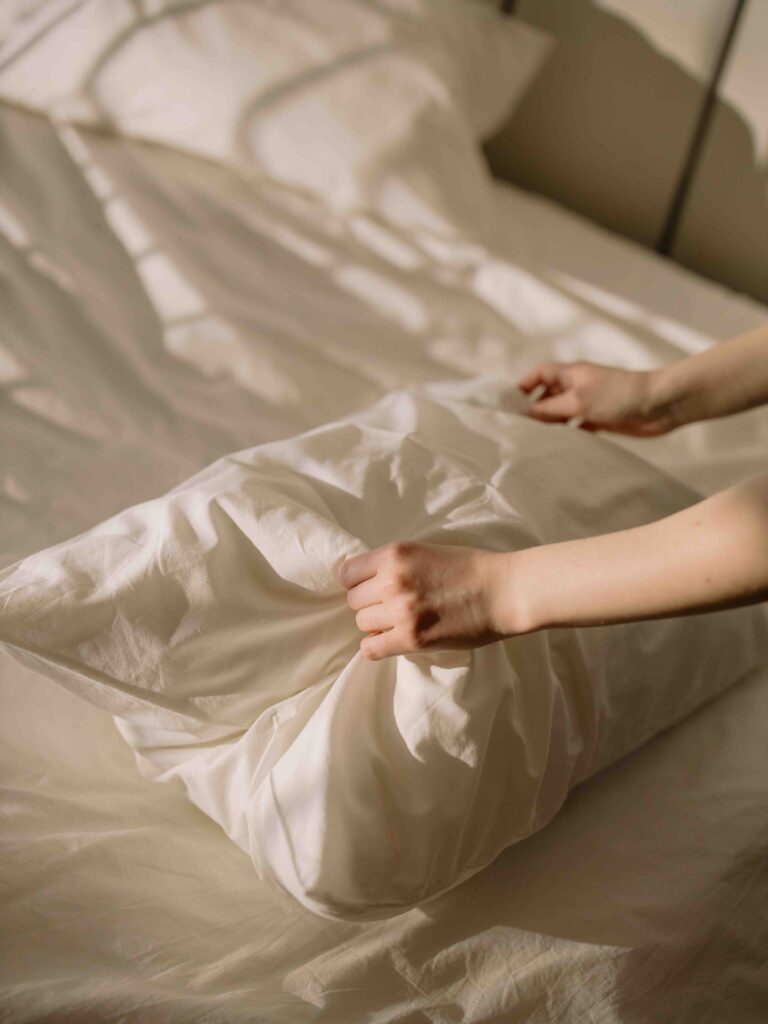 Allergies can be annoying during the daytime, but did you know they also can mess up your sleep? If you’re a sufferer you know the usual routine: lay your head to rest and that’s when the coughing and wheezing start creeping in.
Allergies can be annoying during the daytime, but did you know they also can mess up your sleep? If you’re a sufferer you know the usual routine: lay your head to rest and that’s when the coughing and wheezing start creeping in.
Night-time allergies can result in problems such as daytime fatigue, poor sleep, and the decreased ability to concentrate and focus during the day. This is why it’s important to consider your sleep environment if you are an allergy sufferer. It is downright essential.
The Allergic Response At Night
In general: your immune system is active during sleep and is busy fighting allergies. That process itself might already disrupt sleep (since it is an active process and you might produce for instance more mucus (as a byproduct of fighting the allergy) that might make breathing more difficult, and impact sleep in that way. Further, your bedroom might also be a source of allergens like dust mites or molds, or pollen. These can in turn trigger an allergic response, on top of what was already existing.
The key takeaway is, that your immune system is more active at night and during sleep. Hence we also sleep more when we are sick. Sleep is a healthy bodily response, to effectively fight off the disease. As a consequence, the symptoms of some specific allergies might be more apparent during t night.
Many people suffering from sleep disruptions associated with allergic conditions don’t even realize their tossing and turning is caused by an allergen!
The most related sleep issues can include:
- Trouble falling asleep
- Disturbed sleep
- Waking up during sleep
- Not feeling refreshed in the morning
But what are the main causes of allergies and how can you minimize the symptoms?
Nocturnal asthma.
It’s that coughing, choking, wheezing and congestion that can keep you – and the rest of the family – awake at night.
And while there are several factors that can make asthma symptoms worse at night (such as allergies), the same immune changes and exposure to allergens that affect everyone at night can trigger asthma symptoms if you have the condition.
Remember our friend cortisol? Well, the lower nighttime cortisol levels can make the lungs more susceptible to asthma-associated bronchospasms, which cause wheezing, chest tightness, and shortness of breath.
Obstructive Sleep Apnea
Generally, OSA interferes with sleep because obstruction in the upper airways causes breathing to pause intermittently throughout the night.
With OSA, airflow is decreased during sleep, potentially leading to low oxygen levels in the bloodstream and strain on the heart.
But why are we losing sleep?
When you breathe in, the lungs transport oxygen into the bloodstream where it’s carried to the rest of the body. When you breathe out, they transport the waste product – carbon dioxide – out of the bloodstream. How well these process works varies throughout the day as part of the body’s natural circadian rhythm – an internal clock that regulates body mechanics over 24 hours 24-hour period. Lungs work best during the day, with peak lung function at about 4 p.m. Several studies show that 12 hours later – around 4 a.m. – lung function is at its lowest. The fluctuation is usually less than 10 percent. However, people with allergic diseases can have up to a 50 percent difference between daytime and nighttime lung function.
Clean Sleep
Creating the ideal clean sleeping environment is crucial to minimizing allergy symptoms.
Eliminating allergens and potential asthma-related asthma-related triggers in the bedroom can also make a big difference in your quality of sleep, therefore, removing carpeting, drapes, clutter that collects dust, and allergy-proofing a bed can create immediate improvement.
Purified Air
Air Purifiers, or HEPA purified air filters, can help improve sleep for people with and without allergies. They help clear your bedroom air of common household allergens like mold, dust mites, pet dander, and even pollen brought in from outside.
Active Airflow
Ensuring the correct levels of humidity in the room is essential to keep a bedroom clean, fresh, and mold-free.
Fresh Air
Fresh and clean air is important. One way to achieve that is by opening the windows. Note that polluted air is NOT an allergen, but still can affect sleep at night.
Pollen Out
After spending time outside, especially during high pollen count days, take your clothes off when you come inside the house and put them directly in the laundry room.
Bedtime Routines
Showering before bed helps wash the debris and allergens from the day. Make showering a part of your bedtime routine!
Note: Remember, speak to your doctor to discuss treatment options should any of these tips not support you.



